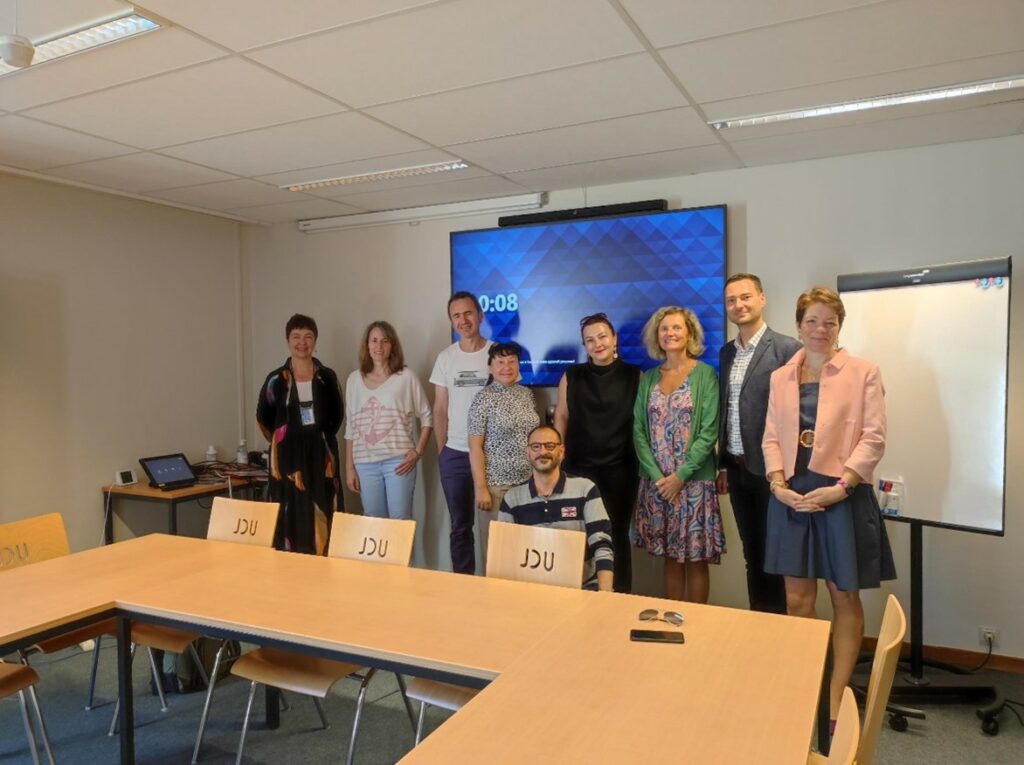Working Group 5 meeting – Language learning and teaching
UCLouvain, Louvain-la-Neuve, Belgium, 5th and 6th July 2022, meeting funded by the COST Action Language in the Human-Machine Era
Organizer: Fanny Meunier (WG5 vice-chair)
Other Participants: Antonio Pareja-Lora, Universidad de Alcalá, Spain; Aysel Şahin Kızıl, İzmir Bakırçay University, Turkey; Blanka Klimova (WG5 chair), University of Hradec Kralove, Czech Republic; Eve Lejot, University of Luxembourg, Luxembourg; Jose Mari Arriola (WG 5 vice-chair), University of the Basque Country, Spain; Marcel Pikhart, University of Hradec Kralove, Czech Republic; Rocío Bartolomé Rodríguez, Universidad Autónoma de Madrid, Spain; Yulia Stukalina, Transport and Telecommunication Institute, Latvia
On 5 and 6 July 2022 (two lovely sunny days!), 9 participants from LITHME’s WG5 met at UCLouvain (Belgium) to discuss their ongoing and future work related to technologies in language learning and teaching.
The meeting started with an update on the collaborative work carried out by the various sub-groups in WG5: Antigoni discussed the publication on the use of chatbots in Language Education (under review), José focused on the questionnaire sent to L1 teachers of low-resourced and minority languages; Blanka announced that the systematic review on neural machine translation in foreign language teaching and learning was now out (Educ Inf Technol, 2022, https://doi.org/10.1007/s10639-022-11194-2) – congrats to the authors Klimova, B., Pikhart, M., Benites, A.D., Lehr, C., Sanchez-Stockhammer, C.; and Marcel updated us on the status of the systematic review on the use of ICT in reading comprehension (still under review).
The main aim of the meeting was for the group to work on a book chapter that will appear in the final edited volume of the LITHME COST action and we worked in three different steps: group brainstorming (ideas, methodology, the overall structure of the chapter, writing timeline); division of work: cooperative and collaborative work, initial division in three subgroups; work/discussion in sub-groups for more detailed suggestions. We discussed five central issues: 1. the importance of including key frameworks of references related to language learning and teaching (e.g. DigCompEdu, the CEFR and its various supplements, the TPACK framework, the SAMR framework); 2. the need to adopt a teacher’s perspective (to the service of learners of course!): How can technology help teachers do their job in their respective situated contexts? or Which aspects of the learning can technology support?; 3. the focus on technology that has real added value (and not technology as simple substitution); 4. the impact of technologies on/for cognition; 5. technology and inclusiveness.
@readers: no further spoilers here, you’ll have to wait for the chapter 😉
Stay tuned with WG5’s work!


